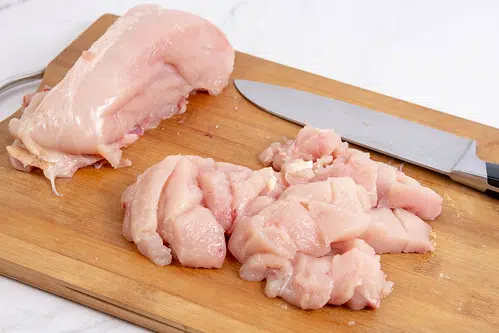New Brunswick’s Department of Health has declared a salmonella outbreak in the province.
Thirteen cases were confirmed between mid-June and late July, with two more potential cases under investigation.
Health officials say the increase in cases is in the province’s northern and eastern regions.
While a specific cause has not been identified, officials say salmonella is commonly associated with consuming and handling raw chicken and eggs.
“When preparing raw meats, the risk is especially high for certain kinds of food poisoning, including infection caused by the bacteria salmonella enteritidis,” said Dr. Jennifer Russell, chief medical officer of health, in a statement.
“I strongly encourage people to take safety precautions when handling raw chicken and eggs and to ensure that these and all raw meat products are thoroughly cooked.”
Below are a few tips from the Department of Health.
Cook:
Kill harmful bacteria by cooking food until it reaches the proper temperature. Do not guess. Use a digital instant-read food thermometer to check when meat and poultry are safe to eat. The safe temperatures for cooked foods are:
- 85° C (185° F) for whole poultry;
- 71° C (160° F) for ground beef; and
- 74° C (165° F) for leftover food.
Eggs are safer when cooked thoroughly, such as when hard-boiled or scrambled, and served hot.
If you check the temperature of meat more than once, clean the thermometer before using it again.
Eat cooked food while it is still hot. Bacteria can grow when food is allowed to cool down.
Keep cold food cold. Letting food sit at unsafe temperatures puts you at risk of food-borne illnesses.
Clean
Wash hands and surfaces often to avoid the spread of bacteria.
Wash your hands with hot, soapy water for at least 20 seconds before handling food, and after handling raw meats, eggs or poultry, using the bathroom, changing diapers, or touching pets.
All harmful bacteria can be spread just by touching an infected surface, such as a cutting board, and then touching another surface.
Wash and sanitize all plates, utensils and cutting boards that touched or held raw meat or poultry before using them again for cooked foods. Use a mild bleach and water solution before and after preparing food to sanitize surfaces.
Keep raw foods separate from cooked foods to avoid cross-contamination.
Store raw meats and poultry in the fridge on bottom shelves to prevent juices from dripping onto other foods.
The simple rule is: when in doubt, throw it out.








